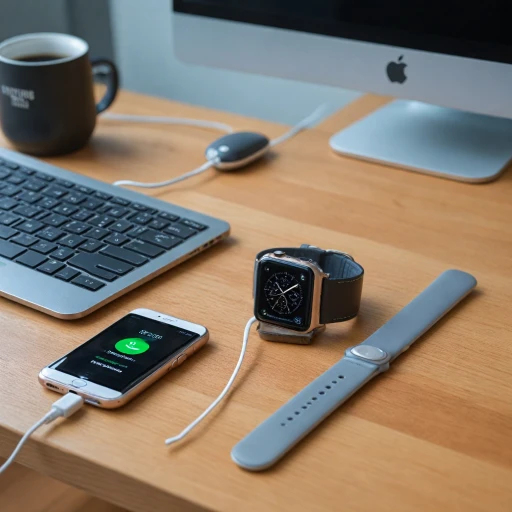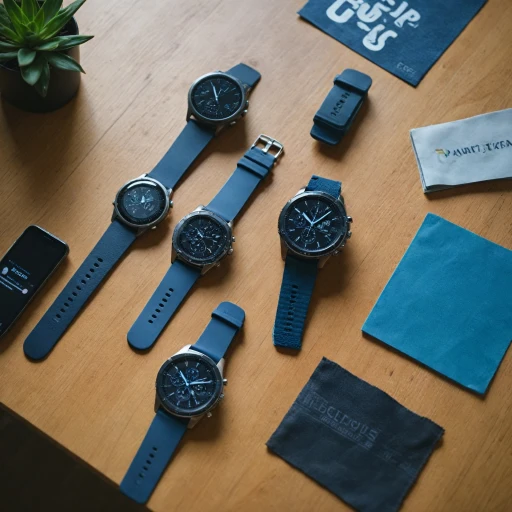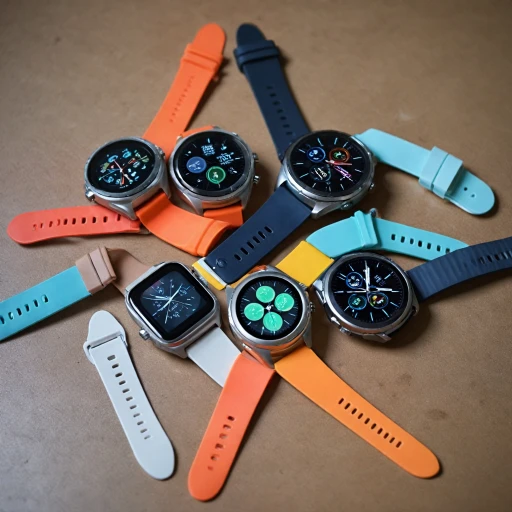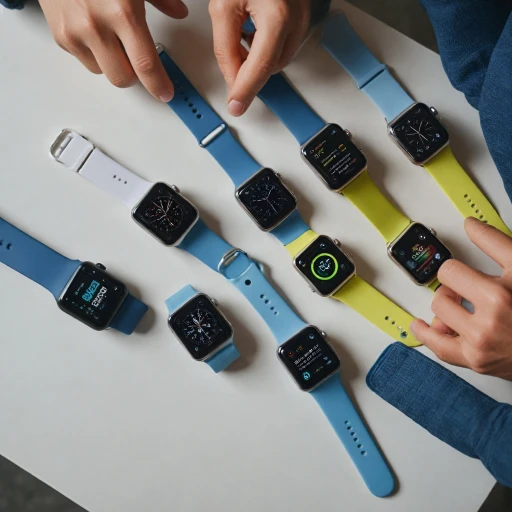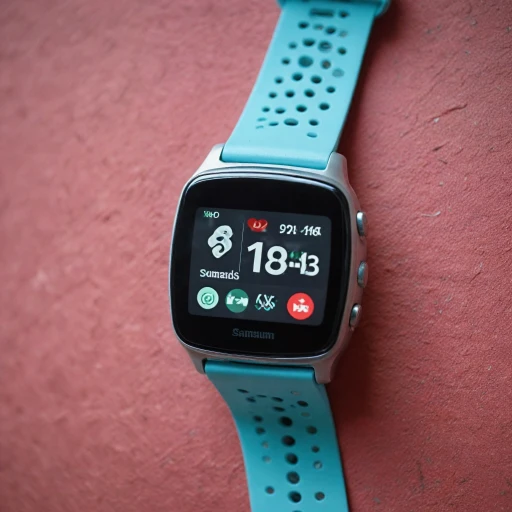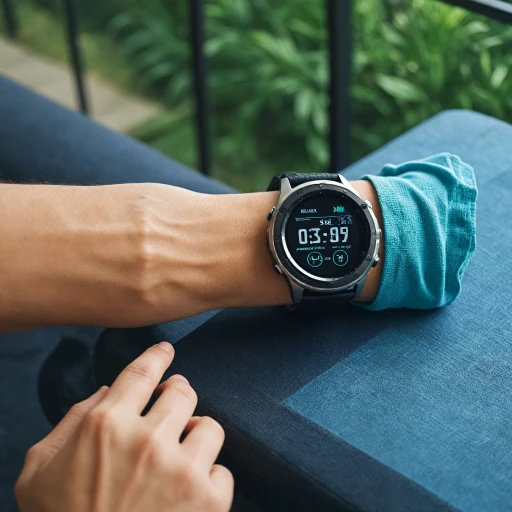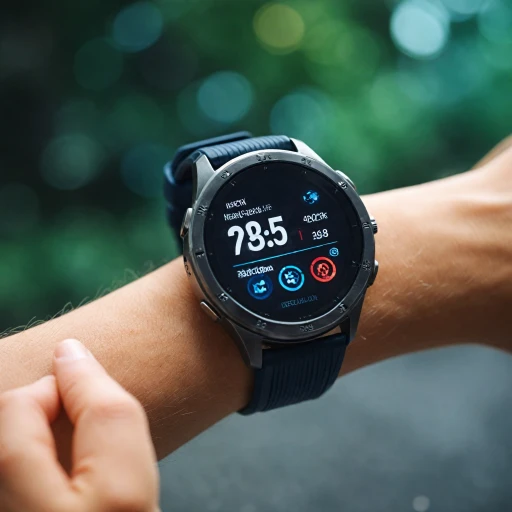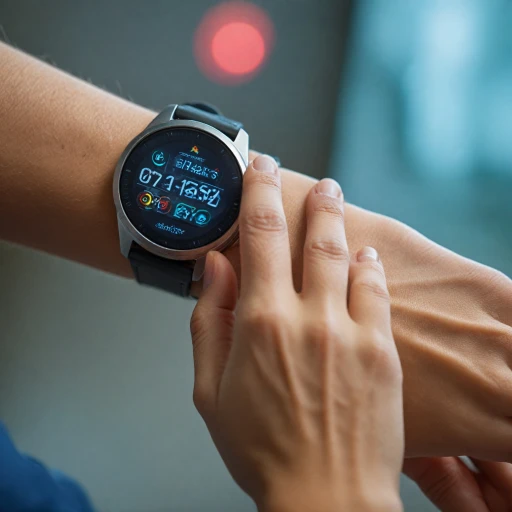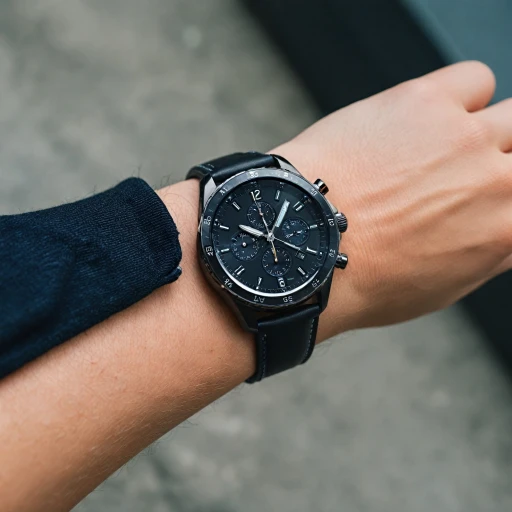
Understanding the Basics of Activity Tracker Smartwatches
Exploring the Foundations of Activity Tracker Smartwatches
When delving into the world of activity tracker smartwatches, it's crucial to understand what sets these devices apart. At their core, these watches are designed to help you monitor various aspects of your health and fitness journey. Unlike traditional watches, activity tracker smartwatches keep a finger on the pulse of your lifestyle by seamlessly integrating technology with daily activities. One significant feature is the heart rate monitoring capability, which has become a standard in most fitness trackers. This vital function helps individuals tailor their workouts to optimal levels, ensuring effective heart-pumping activity while avoiding overexertion. You can find high-quality heart rate monitoring in devices from brands like Garmin, known for their dedicated fitness focus, while Apple Watch offers an array of health-oriented services. Battery life is another essential component to consider. With some devices, such as the Oura Ring, boasting long battery life of several days, users can go about their routines without frequent recharges. For instance, Samsung Galaxy's battery life may differ slightly from that of a Garmin Forerunner or a Fitbit Charge, but the priority remains ensuring that your fitness data is consistently tracked. Sleep tracking is an integral aspect that many watches offer, helping wearers gain insights into their sleep patterns. Such features often include data about sleep stages, allowing users to optimize their rest for better overall health. Enhanced apps provide in-depth analysis, facilitating data-driven health decisions. Furthermore, built-in GPS technology offers more precise tracking of outdoor activities such as running, cycling, or hiking. Devices like the Amazfit Band or Garmin watches with this feature, let users explore routes while keeping their smartphones at home or tucked away. Notably, water resistance in devices, such as certain models in the Galaxy Watch series, ensures usage flexibility in various environments. Price is always a consideration, with options at different tiers to fit diverse budgets. From luxury items to more budget-friendly choices, the market caters to a range of needs, ensuring there's an activity tracker smartwatch for everyone. Finally, for those keen on maximizing their fitness tracking capabilities, understanding metrics like VO2 max on popular models such as the Apple Watch can provide valuable insights. For further details on this, explore more here. These features connect across an ecosystem of health and fitness data, offering comprehensive insights to enhance your journey.Key Features to Look for in an Activity Tracker Smartwatch
Essential Attributes of Modern Activity Trackers
Choosing the right activity tracker smartwatch can significantly impact your fitness journey. There are several key features to consider when selecting the best device to suit your needs, whether it’s monitoring your heart rate during workouts or ensuring seamless integration with other health apps.
Heart Rate Monitoring and Tracking
Heart rate tracking is a fundamental feature for most fitness trackers today. Devices like the Fitbit Charge and Apple Watch include advanced sensors capable of providing real-time heart rate monitoring. These insights can help you understand your heart's health better and optimize your workout intensity for improved results.
Battery Life Essentials
Battery life is another critical factor. While some devices such as the Garmin Forerunner offer extended usage for several days without charging, others provide more feature-rich experiences but require more frequent charging. Consider how often you are willing to charge your device to find the best balance for your needs.
Navigation with Built GPS
For those who enjoy outdoor activities like running or biking, built-in GPS can be invaluable. Watches such as the Galaxy Watch come with GPS capabilities, offering accurate tracking of your routes and enhancing the appeal of your workouts without needing another device.
Water Resistance Ratings
Water resistance is a crucial feature for swimmers or anyone who wants to keep their watch on in the shower or pool. Devices like the Samsung Galaxy and the best fitness trackers typically offer varying levels of water resistance, safeguarding against occasional splashes or more immersive aquatic environments.
Advanced Health Monitoring Features
Some trackers now come equipped with more specialized health monitoring capabilities. The Oura Ring and some Apple Watch series models offer sleep tracking and even blood oxygen level measurements. As these technologies advance, they provide deeper insights into overall health and fitness tracking.
Explore the future of such enhancements, as innovations like glucose monitoring could soon become mainstream in devices, as discussed in our blog on exploring the future of glucose monitoring with smartwatches.
How Activity Tracker Smartwatches Improve Your Fitness Routine
Steps to Elevate Your Fitness with a Smartwatch
Incorporating an activity tracker smartwatch into your fitness routine can significantly enhance how you monitor and achieve your health goals. With various features tailored to assist you better, these devices offer a comprehensive approach to tracking and improving your physical activity.
Here's how an activity tracker smartwatch can make a difference:
- Heart Rate Monitoring: Keeping tabs on your heart rate is more accessible with a smartwatch. By providing real-time data on your heart's performance during different activities, you can make informed decisions about your health and fitness levels. This can help in identifying the best fitness routines suitable for your heart's capacity.
- Sleep Tracking: Quality sleep is as vital as exercise for good health. With sleep tracking features, smartwatches like the Apple Watch or Garmin Forerunner provide detailed insights into your sleep patterns, helping you improve your sleep quality for better overall wellness.
- Activity and Workout Tracking: Whether it's counting steps, monitoring distance with built GPS, or tracking workouts, smartwatches offer a range of activity tracking options. The Fitbit Charge or the Samsung Galaxy Watch can assist in maintaining a record of your daily activities, easily integrating with various health apps.
- GPS and Water Resistance: For outdoor enthusiasts, smartwatches equipped with GPS and water resistance features, such as the Garmin Forerunner and Galaxy Watch, are invaluable. These features enable you to track your routes and activity even under challenging weather conditions.
- Battery Life for Long-term Monitoring: A substantial battery life ensures uninterrupted tracking for several days. Devices like the Amazfit Band promote longer life days, which is crucial for continuous fitness tracking.
- Integration with Health Apps: By connecting your smartwatch with health apps, you can create an all-encompassing ecosystem of fitness tracking. Whether you're using the Apple Watch series or other models, learning how to pair these devices effectively with other apps further personalizes and enhances the tracking experience.
By exploiting these advanced capabilities, a fitness tracker not only stands as a simple watch but evolves into a central hub for health and fitness monitoring, keeping you both informed and motivated on your journey to a healthier lifestyle.
Comparing Popular Activity Tracker Smartwatches
Comparing Top Contenders in the Activity Tracker Market
In a world where technology constantly evolves, finding the right activity tracker smartwatch is crucial for enhancing your fitness journey. Among the myriad of options, some key contenders stand out: Apple Watch, Samsung Galaxy Watch, Garmin Forerunner, Fitbit Charge, and Amazfit Band. Each of these devices offers unique features that cater to different fitness needs, lifestyles, and budgets.- Apple Watch Series: Known for its seamless integration with the Apple ecosystem, the Apple Watch offers advanced health features, such as blood oxygen and heart rate monitoring. It delivers robust fitness tracking capabilities through its dedicated app, with a focus on activity rings and mindful practices. Although its price point is higher, its comprehensive features and sleek design justify the investment for many users.
- Samsung Galaxy Watch: With a variety of models to choose from, the Samsung Galaxy Watch series offers excellent fitness and health tracking, thanks to built-in GPS and the Samsung Health app. With features like sleep tracking and heart rate monitoring, it caters to Android users looking for a versatile smartwatch at a more affordable price.
- Garmin Forerunner: Designed for dedicated athletes, especially runners, the Garmin Forerunner stands out with its accurate GPS tracking and extended battery life. It excels in providing detailed fitness data and metrics that are essential for performance improvement, making it one of the best fitness trackers for serious enthusiasts.
- Fitbit Charge: Fitbit has long been a leader in the fitness tracker market, and the Fitbit Charge exemplifies the brand's commitment to health and activity tracking. With an emphasis on sleep tracking and heart rate data, it helps users understand their daily activity and make informed health decisions.
- Amazfit Band: For those on a budget, the Amazfit Band offers reliable fitness tracking features at a lower price point. While it may lack some of the advanced capabilities of its competitors, it covers all essential tracking needs, making it an excellent choice for those new to fitness trackers.
Integrating Smartwatches with Other Health Apps and Devices
Synchronizing Your Wearable with Health Apps and Devices
Activity tracker smartwatches are not just standalone devices; they work in tandem with other health apps and devices to present a comprehensive picture of your wellness. Integrating these devices can optimize the benefits provided by your fitness tracker, whether you’re using a Galaxy Watch or a Fitbit Charge. Here’s how you can make the most of these integrations:- Data Aggregation: Many smartwatch brands, like Garmin Forerunner or Apple Watch Series, offer apps that consolidate data from multiple sources. These insights, be it heart rate data, sleep tracking, or blood oxygen levels, provide a holistic view of your health. The integration of these features significantly enriches the user experience and enhances tracking accuracy.
- Seamless Connectivity: Fitness trackers often come equipped with features enabling easy connection to smartphones, tablets, or even smart home devices. Integrated GPS services commonly found in devices like the Samsung Galaxy Watch provide more accuracy in tracking running routes and other activities.
- Advanced Health Monitoring: Beyond fitness tracking, today’s best fitness trackers interact with specialized health management apps. These might include those focusing on sleep tracking, or even diabetic watches for health management, ensuring that users get targeted support in areas where they need it most.
- Extended Battery Life: When integrated with proper usage guidance and optimized software, many trackers have enhanced battery life. Garmin devices, for instance, offer impressive life days on low power modes, reducing the need for frequent recharges and ensuring that data collection is not interrupted.



